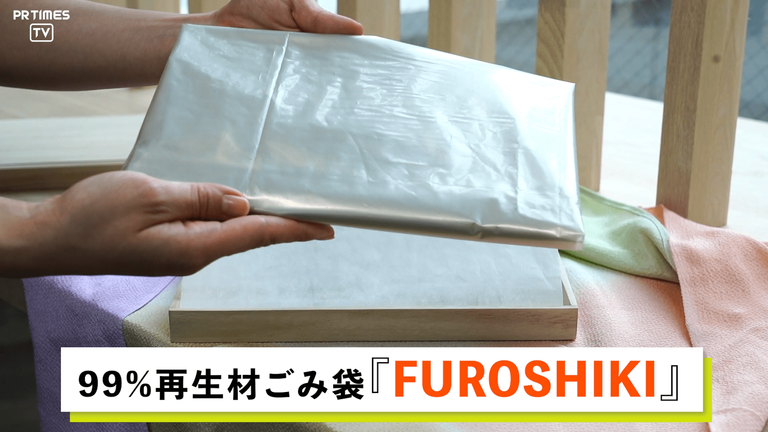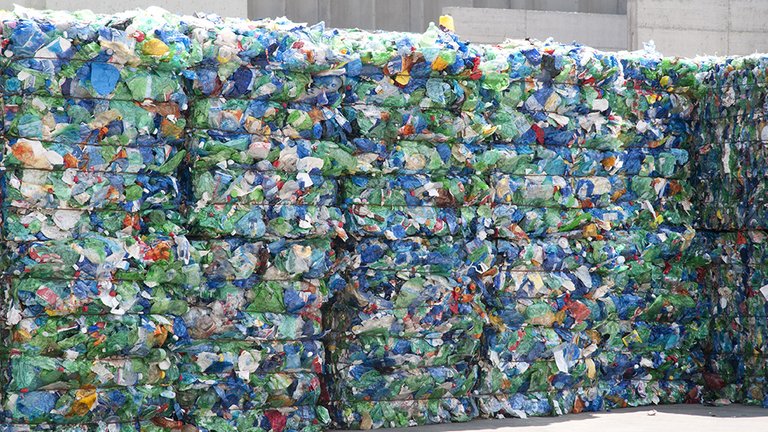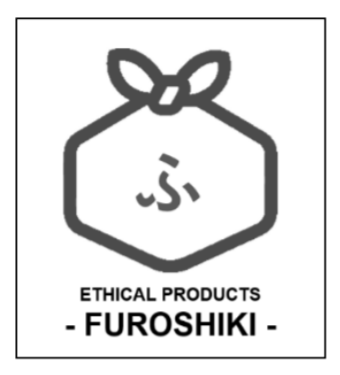As of last month, Japan banned free plastic bags at retail outlets to encourage shoppers to bring their own reusable shopping bags to cut down on waste.
In response, a Tokyo-based business-to-business company, K.K. Satisfactory, released a 99% recycled trash bag called “Furoshiki” designed for corporate use. The company is known for its waste disposal management services, and the Furoshiki bags are part of this project. Furoshiki bags are manufactured with plastic waste that the company collects from various establishments. The product is named after the eponymous traditional Japanese wrapping cloth.
“A 99% recycled trash bag, Furoshiki.” (Image: PR TIMES)
K. K. Satisfactory explains that the majority of polyethylene plastics bags used in Japan are imported, creating 58,000 tons of waste every year. According to the Ministry of the Environment, nearly 80% of waste is incinerated in Japan. Therefore, importing single-use plastic bags might not be a wise thing to do. The company also asserts that all the production processes related to this eco-friendly trash bag are conducted in Japan, from the collection of materials to manufacturing and distribution.
(Image: Shutterstock)
As of June 30, the company had collected 34 tons of used plastics from 20 businesses, including logistics, food manufacturing and telephone companies. The total amount of waste collection exceeded 34 tons in June alone. This amount is equivalent to two million 45L bags. As you may have suspected, this waste will, of course, be the key ingredient in producing more trash bags. The company is expecting to collect plastic waste from more than 60 businesses by September. Moreover, the company will promote the use of Furoshiki more widely.
Furoshiki will allow businesses to measure their impact
Furoshiki comes in four different sizes. You can calculate the amount of CO2 you are able to cut by using each one, making it easy to measure one’s impact on the environment from using the product. For example, if you are using the smallest bag (45L, 650x800mm, 500 bags per box), you can save 30kg worth of CO2. If you are using the largest one (120L, 1,100×1,200 mm, 200 bags per box), you can save 40kg worth of CO2.
The company says that businesses are not only expected to take action to address social and environmental concerns but also to be able to measure the impact of their efforts. By making the simple decision of switching to this eco-friendly garbage bag, more and more businesses can be part of the systemic shift to a circular economy.
(Image: sfinter.com)
(This article was originally published on Zenbird Media.)
Additional Resources
Zenbird Media Homepage
More reevaluating plastic use
News articles surrounding circular economy in Japan
3 everyday items you can use today to replace those plastic ones!